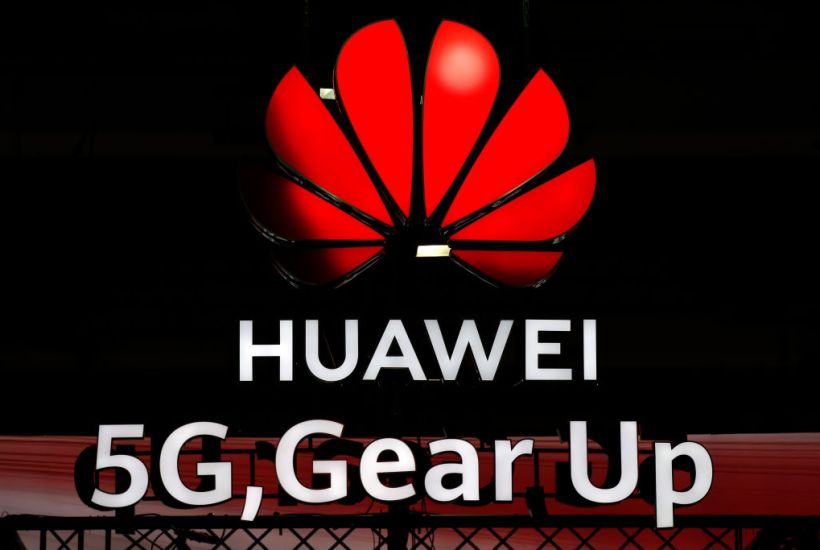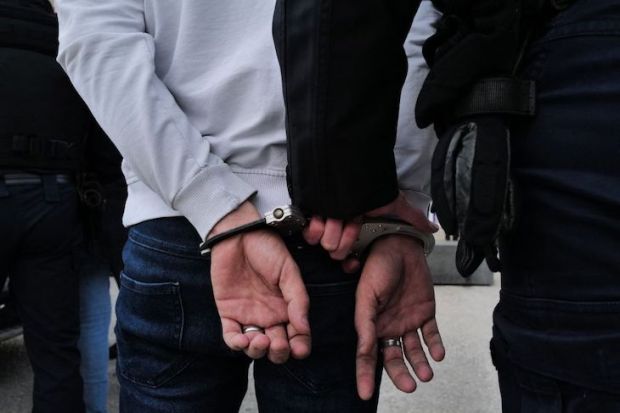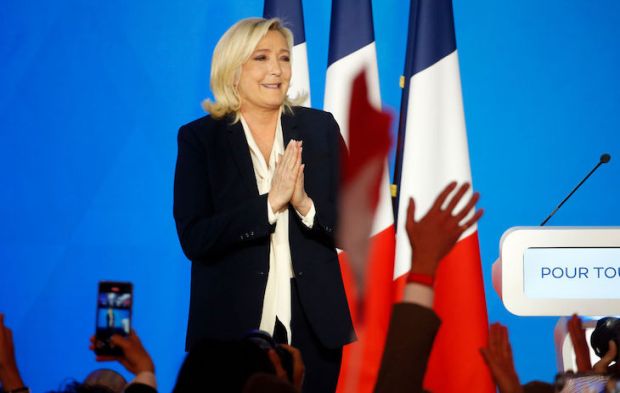The controversy over the UK’s use of Huawei equipment in its 5G network has not abated, despite the government’s announcement that the Chinese manufacturer’s equipment will be stripped from the network by 2027. Conservative MPs continue to be unsatisfied by this half-way house, claiming that Britain will remain vulnerable to ‘back-door’ espionage by the Chinese state. They carry on threatening the government with an embarrassing, albeit symbolic, rebellion.
But it is no secret that the real pressure to abandon Huawei equipment comes principally, and forcefully, from the UK’s ‘Five Eyes’ partners. The ‘Five Eyes’ network dates back to the Second World War and comprises the UK, the USA, Canada, Australia and New Zealand. It is the most sophisticated signals intelligence network in the world and allows Britain – via the Government Communications Headquarters (GCHQ) – to seriously punch above its weight in intelligence gathering and analysis. Given the level of integration of ‘Five Eyes’, any breach of one could potentially compromise all. Hence pressure from within the exclusive club for Britain to conform with other members.
Of course, the compromise of removing Huawei by 2027 and not allowing it to install technology close to sensitive sites, was an attempt to assuage ‘Five Eyes’ partners without upsetting the Chinese state for commercial reasons. Also GCHQ thought it had sufficient expertise to ensure that the 35 per cent of Huawei infrastructure built into UK 5G could be technically controlled up to 2027 to reduce risk.
Interestingly, France – the state with a similar international profile and world role to the UK – has this week confirmed a similar position to the British compromise of allowing Huawei to build some of its network, away from sensitive sites, until the late 2020s. Indeed it is almost as if the two consulted on how best to finesse the question. France, of course, is not a member of ‘Five Eyes’, but it is a member of ‘Nine Eyes’, which includes the famous 5 plus France, Denmark, the Netherlands and Norway. This club is by no means as integrated as the first, but it does place Paris in the second most important circle of western signals intelligence. It may be here that Britain and France aligned their first response to Huawei.
The French Gaullist tradition teaches that foreign policy, once charted, is not easily deviated from – especially under ‘Anglo-Saxon’ pressure. President Macron has consistently stated that France will not be beholden to either contemporary superpower – USA or China – and that he will work with both, but under no illusions about their predatory tendencies. He believes that Europe is the instrument for dealing with the ‘Big Two’ as equals – and is therefore going ahead with Huawei.
But that may be naive, for China has France in its sights as something of a softer touch than the ‘Anglo-Saxons’, as well as a power traditionally more independent of the US. In 2018, following the beginning of Donald Trump’s commercial war with China, Chinese investment in North America and the UK declined significantly, while increasing in France by 86 per cent. Recently, the French have become anxious about this investment, which is not only snapping up French infrastructure – such as Toulouse airport, where Airbus headquarters are based – but also large tracts of agricultural land and, more importantly, high tech companies. Huawei already has three French research centres and is scheduled to begin work on a new factory in France, as a pay-off for its role in the new French 5G network. To boot, two former members of France’s foreign intelligence organisation, the DGSE, including the former head of station in Beijing, were this month found guilty of treason and spying on behalf of China, albeit several years ago.
France is a special prize for China because among continental European states, it is by far the most international in terms of foreign policy, defence and intelligence – in a similar way to Britain, but without the US looking over its shoulder. That is where France is a softer touch. And she has a very impressive array of intelligence tools to attract Chinese attention if they could find a ‘back-door’ access.
Beyond the ‘Nine Eyes’ intelligence network, France is at the centre of a global top secret strategic electronic network of spy stations known as ‘Frenchelon’. Run by the DGSE, it was nicknamed after its ‘Five Eyes’ big brother ‘ECHELON’ – as revealed by Edward Snowden. Both have satellite and land-based infrastructure tracking stations and signals interception posts in the four corners of the world, France’s located on confetti remnants of her overseas empire from Saint Barthélemy in the Caribbean to New Caledonia in the South Pacific. In the Gaullist national independence tradition, having largely built this themselves, the French manage it alone – albeit cooperating with western allies. But unlike the ‘Five Eyes’ partnership, they have no team member able to scrutinise and warn of security weaknesses.
The same goes for France’s extensive submarine cable network – originally from empire, like Britain’s – which, like Britain’s, carries a very high percentage of world communications. The French state, once controlling the network’s operators – such as France Telecom, now Orange – continues to use the system for intelligence gathering. And of course, the French, with their mathematical prowess, have since the early twentieth century been international leaders in deciphering encoded diplomatic, industrial and civilian traffic – making their cable network precious.
So when the French say that they can finesse Huawei’s involvement in French 5G, as the UK does, they are playing with fire. In many ways, ‘back-door’ access to French intelligence infrastructure would be a greater prize than Britain’s – where there is the potential for security breaches to be detected by ‘Five Eyes’ partners. Britain may do the sensible thing and drop Huawei altogether, but then critical observers will claim that the Huawei affair shows both states reverting to stereotype: Britain acting as America’s poodle; France, with Gaullist egotistical independence, going its own way.
Got something to add? Join the discussion and comment below.
Get 10 issues for just $10
Subscribe to The Spectator Australia today for the next 10 magazine issues, plus full online access, for just $10.
This article originally was first published in Politeia




















Comments
Don't miss out
Join the conversation with other Spectator Australia readers. Subscribe to leave a comment.
SUBSCRIBEAlready a subscriber? Log in